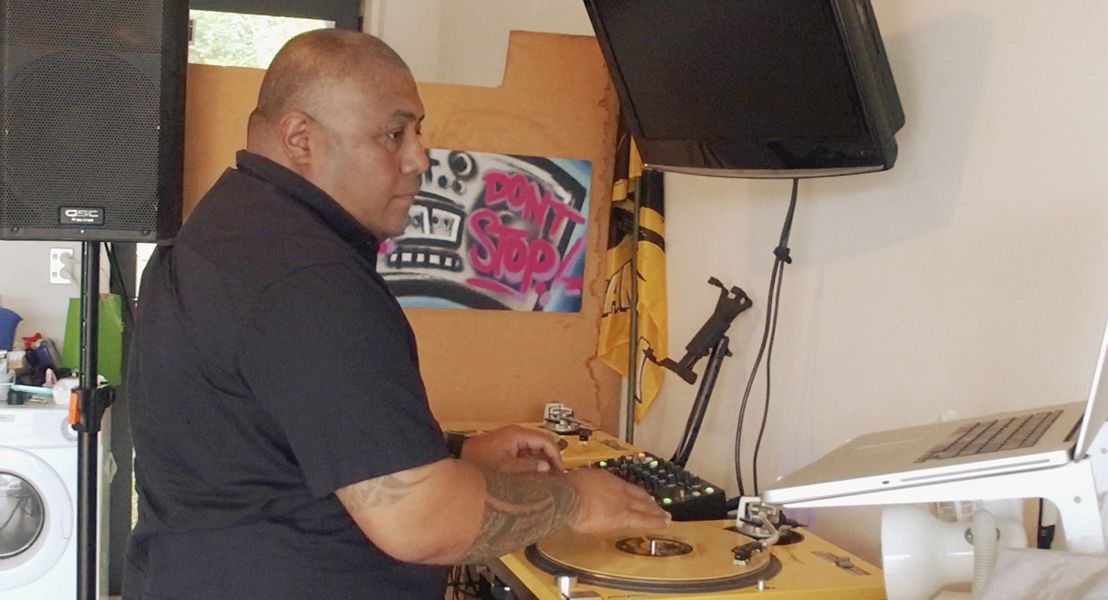“And it felt like there was a particular type of Pacific kid that I was supposed to be.”
Vito learned to give his mind a break through music. After discovering that he wasn’t the only person feeling out of control and isolated from his culture, he was able to talk about how he was feeling and find ways through.
None of us are actually really alone. There’s a lot of us that go through this, and a lot of us will actually manage to get through given time, support and finding people to connect with, finding things to connect with that can kind of give your mind a bit of a rest.
It goes back to probably just pre-teens when I had my kind of first indications that I might have had something like depression or where I felt quite sad, very lonely, often quite tearful.
Our family was the first Pacific Island family in the primary school that we attended, so very few brown kids around. Us as a family kind of moving into that environment. My mum would often speak the language; my dad would not speak the language very often. So even within our household, we had this kind of clash of we’re Samoan on one hand, but actually we’re also New Zealanders on the other. And it felt like there was a particular type of Pacific kid that I was supposed to be.
So it was quite a hard thing. So I felt like I couldn’t be … I couldn’t be intelligent. I couldn’t be one of the smart kids in class, because that was a very Palangi thing to do. It was a bit of a clash for me to be put up a class in primary school. I mean, it was educationally based, but it was a huge identity clash there that I kind of looked around and thought, actually, I'm brown and I'm not supposed to be here.
So I started rebelling from around that age. And ironically, that was about 10 or 11 years old, so it just pre-dates some of the time when I started to feel quite isolated.
The anxiety probably came a little bit later, but it was somewhat connected to the depression. It was in my late teens when it really got bad. That’s when things, kind of, I lost control of. It felt like I was being subjected to life rather than living life. I was being subjected to just having to be here.
I didn’t really talk to anybody about it for a long time, about it. So I’d made a number of suicide attempts over the course of my teenage years, and it was the one that led me to being in hospital which kind of led me to talking to other people.
What I discovered in hospital was a bunch of other people who had similar experiences. I discovered a friend of mine that I had grown up with was also in hospital at the time when I was there. So one of the guys that I couldn’t talk to on the outside was suddenly this guy that, hey, I could talk to on the inside, and so I was able to kind of open up to him.
That was probably the big change for me was, once I was in hospital, I did actually tell a few people. A few of the responses from some of my friends actually kind of surprised me, in that, you know, some of them were showing up to the hospital to support me. I’d always felt really alone, so I didn’t expect anybody to come, even in telling them where I was. But, you know, a friend of mine came down from Auckland and would come and visit me quite often. Some of the guys that I had grown up with who, you know, we were all too butch and staunch to be talking about our feelings and stuff, but they came and visited me in hospital as well.
And I remember waking up one morning and just feeling like everything I had been through shouldn’t be in vain. I could actually use what I had been through to share with other people and hopefully they learn from it.
So I have been working in mental health ever since. The work helps me to stay well in that it’s given me something fairly rewarding to do.
Kind of the thing that helps me get through at the moment is my kids are a really, really big part of it. What I have been through I don’t want any of my kids to go through. But I also want to be here for them as well if they were ever to go through what I have been through as well. So my kids have been a really big part of my wanting to look after myself and keep myself well.
If my thinking gets such that I’m having trouble pushing negative thoughts out of the way, whether it's for 5 minutes on the guitar or a couple of hours of DJing even at home to myself, it gives my mind enough of a break that I can just kind of recoup. I can mentally recuperate and come back fighting the next day kind of thing.
So it's taking the ugliness of my experiences and turning it into something beautiful.



